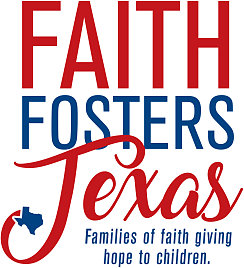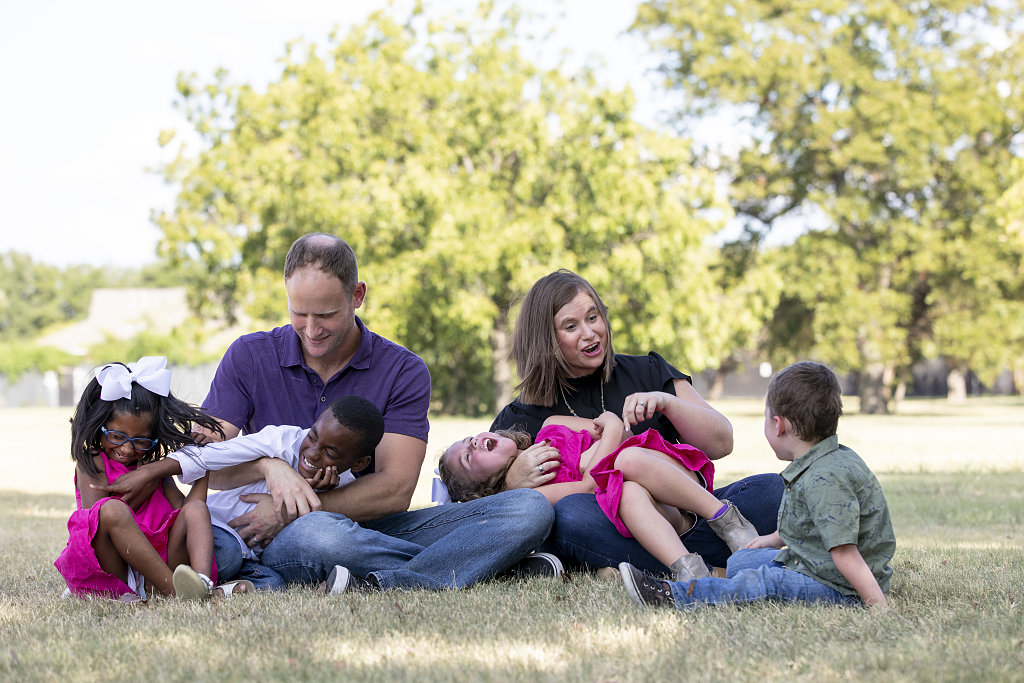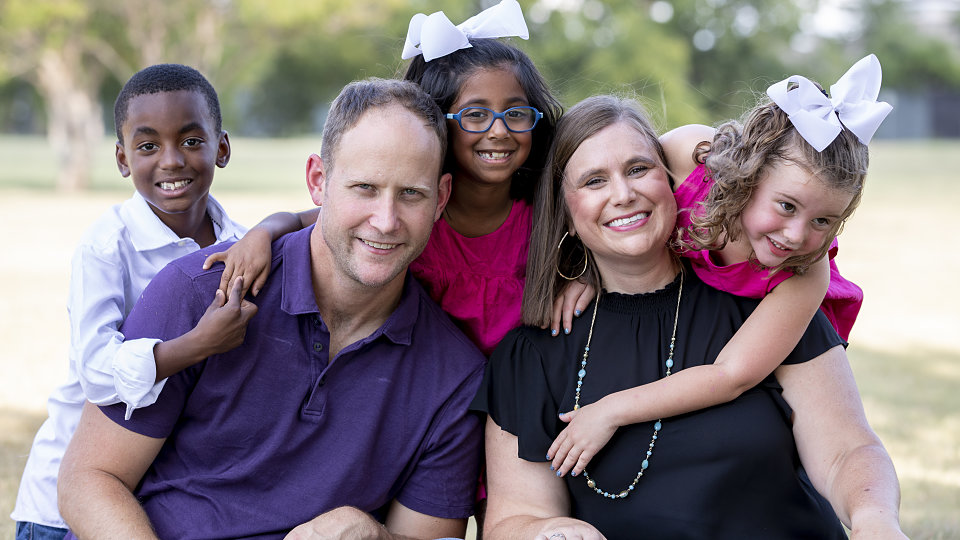Faith Fosters Texas: Texas Baptists focus on fixing an ailing system
Many families today are noticing the great need throughout the foster care and adoption system. According to the Texas Department of Family and Protective Services, 62% of children are removed from their homes due to neglect in Texas and more than 1,000 age out of the foster care system each year. With more than 7,000 children in Texas waiting to be adopted, responding to this call is more pertinent than ever.
 A coalition of Texas Baptist institutions is seeking to answer the foster care crisis, one that has nagged the state for years, but recently reached a crescendo. Coalition members represent the Baylor University Diana R. Garland School of Social Work, Buckner International, Children at Heart Ministries, George W. Truett Theological Seminary, STARRY, STCH Ministries and Texas Baptists, working with the Texas Department of Family and Protective Services.
A coalition of Texas Baptist institutions is seeking to answer the foster care crisis, one that has nagged the state for years, but recently reached a crescendo. Coalition members represent the Baylor University Diana R. Garland School of Social Work, Buckner International, Children at Heart Ministries, George W. Truett Theological Seminary, STARRY, STCH Ministries and Texas Baptists, working with the Texas Department of Family and Protective Services.
That answer, said group members, can happen through a new initiative called Faith Fosters Texas, which seeks to engage every Texas Baptist church in solving the foster care crisis in Texas.
“What we’re trying to do is, in effect, solve one of the biggest crises in the state of Texas,” said David Ummel, a coalition member and church engagement officer for Buckner International. “The foster care crisis is leaving thousands of the most vulnerable of our Texas children unparented and uncared for. That is unacceptable and should be a burden on the radar of every church in the state.”
David Hardage, Texas Baptists executive director, agreed. “Faith Fosters Texas is the place where Texas Baptists can change the future of our most vulnerable children and provide homes for every abandoned, neglected or abused child in the child welfare system.”
Coalition member Kyle Luke, vice president of development and communications for STCH Ministries, said Faith Fosters Texas will engage churches through its website (faithfosterstexas. org) to “connect, coach and build the capacity of churches to effectively minister to vulnerable children and their families.”
“But we need churches willing to commit to a multi-year effort to educate and equip members to fulfill the biblical mandate of caring for vulnerable children and families by embracing and supporting children in foster care,” Luke added, “as well as leveraging church resources to make a positive impact on foster care.”
Texas Baptist churches and members don’t have to commit to a large-scale effort, especially if a majority of churches answer the call.
“Every Texas Baptist church needs to be involved in supporting foster families, kinship families and bio families – churches that care for vulnerable children need to build a culture that is pro-foster care and adoption,” Ummel said.
 He pointed to the difference made by Buck and Stephanie Baskin of Mesquite, Texas, who adopted their children Niki and James after fostering through Buckner Foster Care and Adoption for four years. The couple continues to foster children.
He pointed to the difference made by Buck and Stephanie Baskin of Mesquite, Texas, who adopted their children Niki and James after fostering through Buckner Foster Care and Adoption for four years. The couple continues to foster children.
For the Baskins, members of Lakepointe Church in Rockwall, foster care and adoption is a spiritual response to a societal issue.
“Scripture is very clear about it,” Stephanie said. “Everyone has to help somehow. The idea of kids not having a home didn’t settle well.”
Though slightly younger than James, Niki was placed in the Baskin home first in May 2013. James joined her two weeks later. While Buck and Stephanie previously only did foster care, with Niki and James, they were open to adoption.
“When we first got in, we learned that 60% of the kids went back home to their parents, and we realized that the goal is actually to get the families back together. So we made that our goal,” Buck said. “But the big thing is being open to the process because we also realized that once that doesn’t happen, you’re kind of the last option in a way whether those kids may or may not be in the system for a while. So we realized we need to be open to the idea of adoption as well.”
After the Baskins adopted Niki in November 2013 and James in May 2014, they thought they might continue to do foster care, but then Stephanie found out she was pregnant and decided to take a temporary break and focus on their family.
That brought little Selah into their home.
Today, they continue to parent through foster care and adoption and because of their calling, “messy” is the new normal for Buck and Stephanie Baskin – full of tickle monsters and musical jam sessions. Marathon sessions of playing Hungry, Hungry Hippos. They watch the pet turtle swim in his aquarium, and they laugh with each other.
“We’re a mess,” Stephanie observed with a laugh. “We’re never on time, and I’ve learned that’s OK. And nothing’s ever clean, and that’s OK too.”
Where to begin:
- Recognize the biblical mandate to stand in the gap for the vulnerable and that God’s intent is for the family to be a place where children are safe and given an opportunity to reach their full potential.
- Pray for and preach about foster care and adoption from the pulpit.
- Take the ministry outside of the church walls and collaborate with other churches, agencies or ministries in your community.
- Imagine ways for how everyone can help support foster and adoptive families, beyond becoming foster or adoptive families themselves.
- Encourage and support those already engaged in foster care or adoption such as families, judges, child placing agencies or CPS.
Churches that want to answer the statewide foster care crisis through foster care and adoption can find resources at faithfosterstexas.org. Churches can register on the website, where they will find a church engagement toolkit that will walk them through the engagement process.




Add a Comment